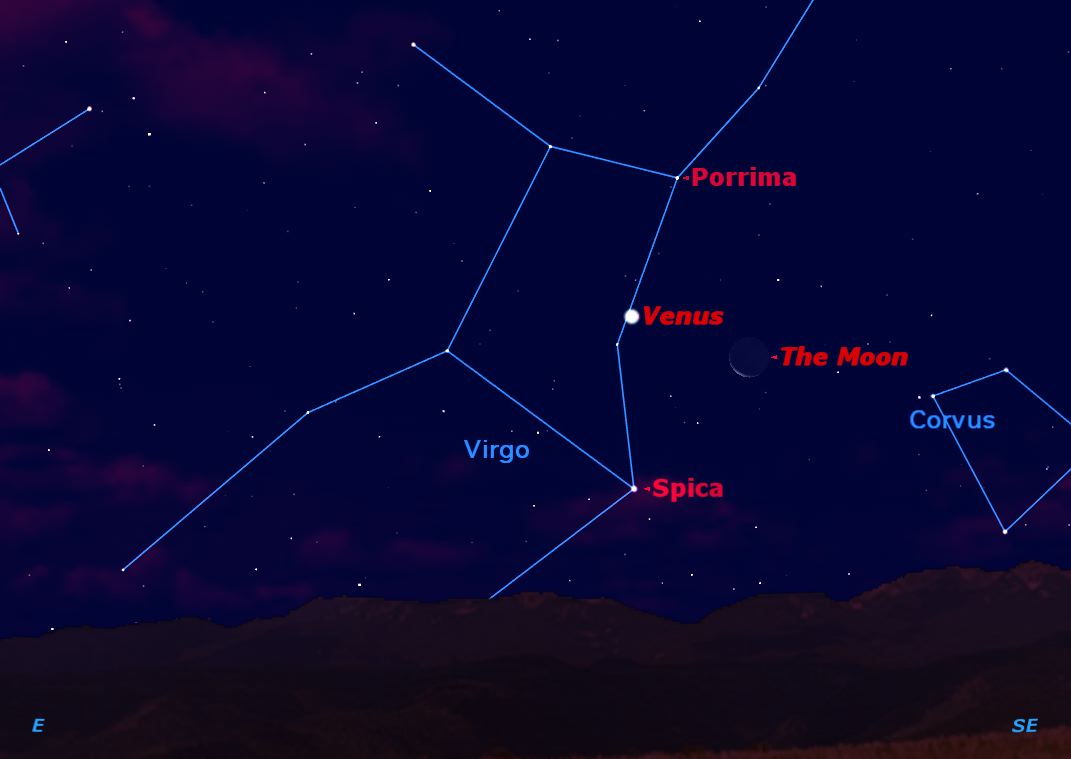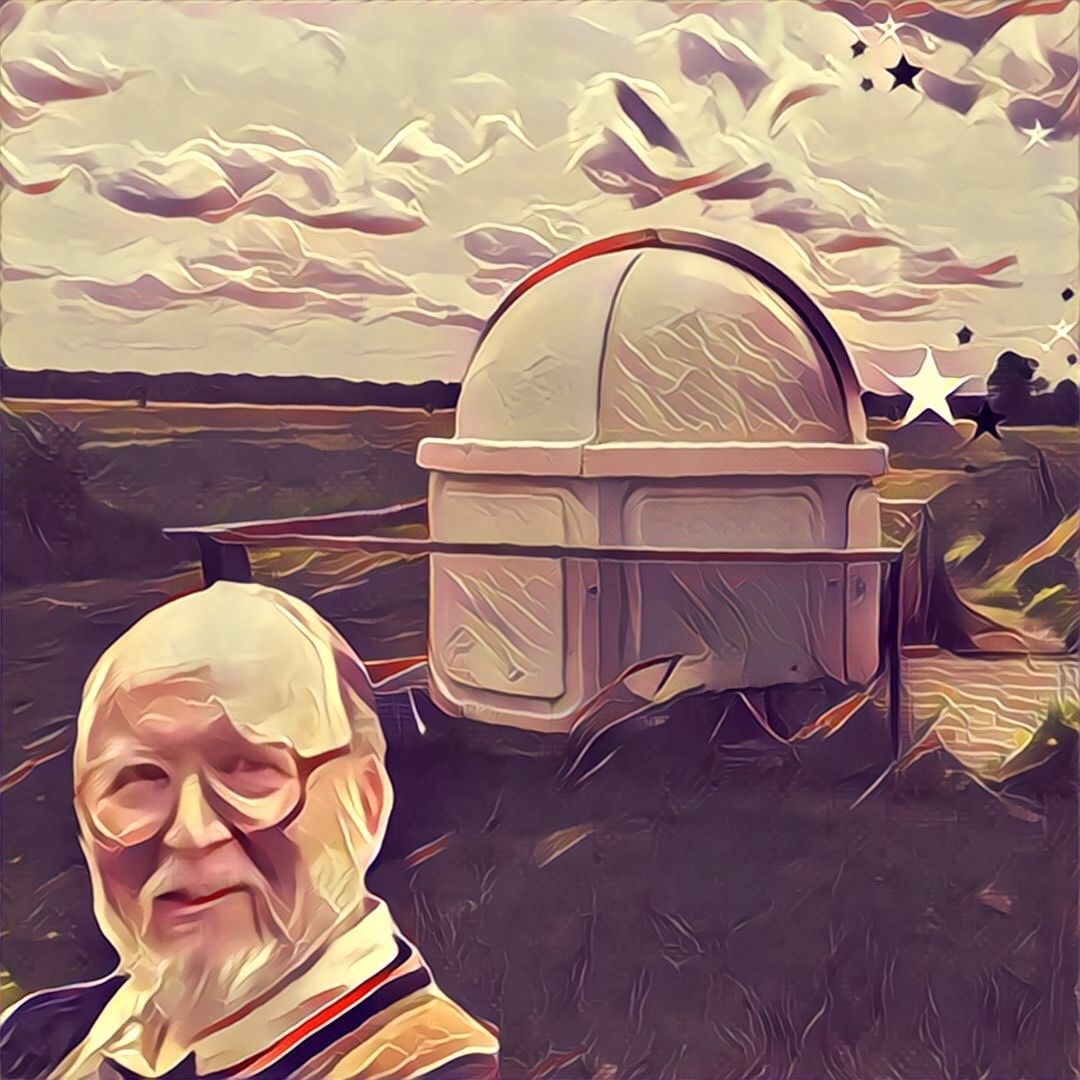Cosmic Triple Treat Will Shine in This Weekend's Dawn Skies

Most of us in North America are getting up an hour earlier this week thanks to the end of daylight saving time. If you're willing to get up a little earlier still this weekend, you will witness a celestial treat: a triple conjunction of the waning crescent moon, the brilliant planet Venus, and the brightest star in the constellation Virgo, called Spica.
Many people don't realize how fast the moon moves across the sky until it passes close by a bright landmark. In this case it will be moving past both Venus and Spica.
On Saturday morning (Nov. 10), the moon will be quite far to the right of Venus. On Sunday (Nov. 11), it will have moved much closer to Venus, forming a tight triangle with Venus and Spica. By Monday (Nov. 12), the moon will be well below and to the left of Spica —quite low in the sky and probably hard to see.
If you do spot the moon that day, look for Saturn just to its left, making its reappearance after a month or two on the far side of the sun. The moon is heading for an eclipse of the sun on Wednesday morning (Nov. 14), which will be a total eclipse only in northern Australia and the South Pacific Ocean, but a partial eclipse all over Australia, New Zealand, and southern South America. [Video: November 2012 Total Solar & Penumbral Lunar Eclipse]
During this time, take a close look at the moon to look for the dim side of its globe lit only by Earthshine, which is sunlight reflected from the Earth. If you do watch all three mornings, see if you can detect Venus' movement relative to Spica: the two bodies are getting closer, heading for a minimum distance on the morning of Nov. 17.
The view will be best Sunday morning, when the three are closest together, but worth a look any morning this weekend.
While you're up, set up your telescope and have a look at Porrima, the second brightest star in Virgo. It is a close double star requiring at least a 75mm telescope to see the two stars separately.
Breaking space news, the latest updates on rocket launches, skywatching events and more!
Many astronomers have forgotten that Porrima is a double star because it has been too close to split in even the largest telescopes in recent years, but it has now opened up enough to make a pretty sight at high magnifications.
This article was provided to SPACE.com by Starry Night Education, the leader in space science curriculum solutions. Follow Starry Night on Twitter @StarryNightEdu.

Geoff Gaherty was Space.com's Night Sky columnist and in partnership with Starry Night software and a dedicated amateur astronomer who sought to share the wonders of the night sky with the world. Based in Canada, Geoff studied mathematics and physics at McGill University and earned a Ph.D. in anthropology from the University of Toronto, all while pursuing a passion for the night sky and serving as an astronomy communicator. He credited a partial solar eclipse observed in 1946 (at age 5) and his 1957 sighting of the Comet Arend-Roland as a teenager for sparking his interest in amateur astronomy. In 2008, Geoff won the Chant Medal from the Royal Astronomical Society of Canada, an award given to a Canadian amateur astronomer in recognition of their lifetime achievements. Sadly, Geoff passed away July 7, 2016 due to complications from a kidney transplant, but his legacy continues at Starry Night.
